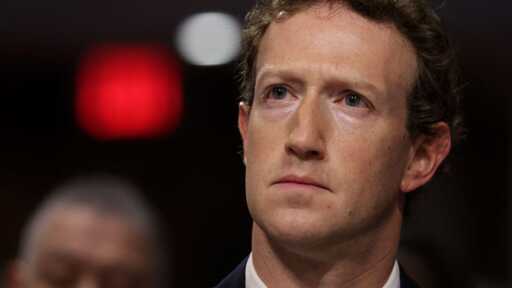Why Mark Zuckerberg wants to redefine open source so badly
-
You’re right. I forgot about the lawsuit and settlement (for $65m). They’re both frauds.
-
I understand the same way and I think there's a lot of gray area which makes it hard to just say "the data also needs to be open source for the code to be open source". What would that mean for postgreSQL? Does it magically turn closed source if I don't share what's in my db? What would it mean to every open source software that stores and uses that stored data?
I'm not saying the AI models shouldn't be open source, I'm saying reigning in the models needs to be done very carefully because it's very easy to overreach and open up a whole other can of worms.
-
And that’s literally what the article says lol I don’t know why you were downvoted.
Emily Omier, a well-regarded open-source start-up consultant, emphasized that open source is a binary standard set by the Open Source Initiative (OSI), not a spectrum. "Either you're open source, or you are not.
-
He's also a sociopath who will say and do anything to get his way.
-
His "idea" was about how to monetize a concept already in existence on MySpace, by completely ignoring any ethical constraints. That, and a snobbery-based product launch through the Ivies.
-
Billionaires are a cancer on the body politic.
-
Embrace, extend, extinguish.
-
No, free as in beer is not a necessary condition for being open-source. And if the code is not free as in beer, the pricing model can be whatever the hell you want, as long as the code is shared when the user is licensed.
-
The binary mentioned is different. Omier was saying either you share all the source code, or it's not open-source. You don't get to retain some proprietary blob for an essential component and still say the whole app is open-source. Pricing is an entirely different question.
-
He is definitely in the same list as Trump and Elon Musk.
-
No, not in the way GP wrote. You're not allowed to have your license discriminate between users, so you'd have to sell your software to everyone, not just big companies.
-
PostgreSQL is not built on top of the data you host in your db. It's not a valid comparison.
-
Open source software doesn't, by definition, place restrictions on usage.
The license must not restrict anyone from making use of the program in a specific field of endeavor.
Clauses like "you can use this software freely except in specific circumstances" fly against that. Open source licenses usually have very little to say about what the software should be used for, and usually just as an affirmation that you can use the software for whatever you want.
-
Open source software can be sold at different prices to different customers, and still remain open source. Open source software can also be sold only to certain types of customers, and still remain open source. Who the developer decides to sell or distribute the software to, and at what price, is unrelated to how the software is licensed.
However, because the Open Source Definition prohibits open source software licenses from discriminating against "any person or group of persons", the customers who buy open source software cannot be restricted from reselling or redistributing the software to any other individual or organization.
-
Right, which means that you practically cannot give open source software for free to non-corporations while selling it to corporations while still being fully open source, as the corporations can simply get it for free from any non-corporation.
-
If you are referring to licenses that prohibit commercial use or prevent certain types of users from using the software, those licenses are not open source because they "discriminate against any person or group of persons".
-
Exactly!
-
But at least that way they get to power trip
-
I appreciate the clarification, thank you!
-
To note is that this definition was discussed for awhile with many engineers in the AI field, including from Meta.



